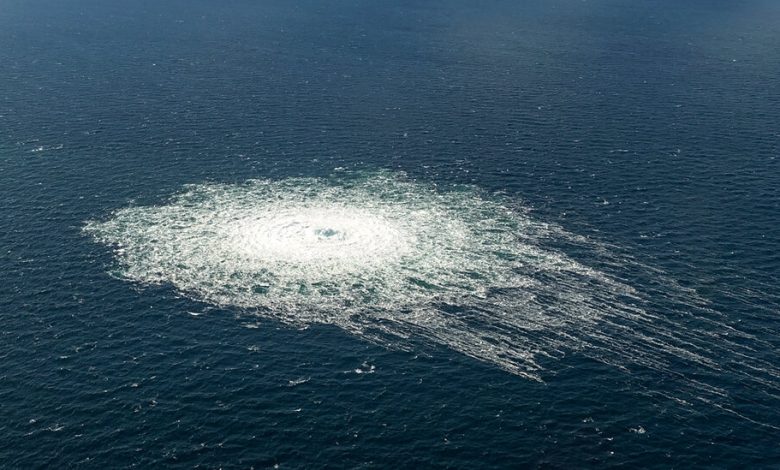The top E.U. diplomat says the Nord Stream leaks resulted from ‘a deliberate act.’

The leaks in the Nord Stream gas pipelines under the Baltic Sea resulted from “a deliberate act,” the European Union’s top diplomat said on Wednesday, joining a growing chorus of European leaders in speaking of sabotage.
Three separate leaks discovered on Monday in the Nord Stream 1 and Nord Stream 2 pipelines from Russia to Germany are “not a coincidence and affect us all,” Josep Borrell Fontelles, the E.U. high representative for foreign affairs and security, said in a statement.
Brussels would support an investigation, he added, and would “take further steps to increase our resilience in energy security.”
European officials have been deeply unsettled by the ruptures in the pipelines. Though the leaks will not immediately affect Europe’s energy supply, they underscore the vulnerability of the continent’s energy infrastructure. Top Polish and Ukrainian leaders blamed Moscow for the leaks, without providing evidence, while Russian state media suggested U.S. or Ukrainian involvement.
Sweden’s security opened an investigation into the matter, calling the leaks acts “gross sabotage” and saying it could not rule out that a foreign government was behind it.
Mr. Borrell said deliberate disruption of Europe’s energy infrastructure “is utterly unacceptable and will be met with a robust and united response.”
The comments echoed a warning posted on Twitter on Tuesday night by Ursula von der Leyen, the president of the E.U.’s executive arm, calling the leaks “sabotage action,” adding that it was “paramount” to conduct an investigation.
The European Union lacks formal investigative powers, but officials said that it would support inquiries conducted by national authorities.
On Wednesday, the Kremlin’s spokesman, Dmitri S. Peskov, called allegations of Russian involvement “predictably stupid and absurd,” and again pointed a finger at the United States.
The immediate impact of the leaks on its energy supply is expected to be limited. Though filled with gas, neither pipeline was moving gas to Europe. Nord Stream 2 had not been authorized to operate, and Nord Stream 1 has been practically cut off since August by Gazprom, the Kremlin-controlled energy giant.
Still, the leaks exacerbated Europe’s jitters in its escalating energy war with Russia. Since the invasion of Ukraine, President Vladimir V. Putin of Russia has been toying with the continent’s energy supplies, turning off the taps and escalating tensions in response to the European support for Ukraine.
The extent of the damage became clear on Tuesday, the day of the official opening of the Baltic Pipe project, a new gas pipeline transporting fuel from Norway through Denmark to Poland, which has been built as part of the European Union’s plan to wean itself from Russian fossil fuels.
Danish and Polish leaders said that the timing was not a coincidence. Swedish seismologists said they detected large undersea explosions on Monday near the site of the leaks, and President Biden’s national security adviser, Jake Sullivan, called the incident “apparent sabotage.”
Prime Minister Mateusz Morawiecki of Poland said the authorities do not know the details of what happened “but we can clearly see that it is an act of sabotage.”
Denmark’s prime minister, Mette Frederiksen, echoed that judgment. “It’s hard to imagine that it’s accidental,” she told reporters, while declining to place blame.
Finland’s foreign minister, Pekka Haavisto, said on Wednesday that the Finnish authorities would investigate “all movements of ships in the Baltic Sea and try to find out what kind of movement has taken place in the vicinity of the pipes.”
“There are various possibilities, but the magnitude of this act is such that surely some governmental player is behind it,” he told the newspaper Helsingin Sanomat.




